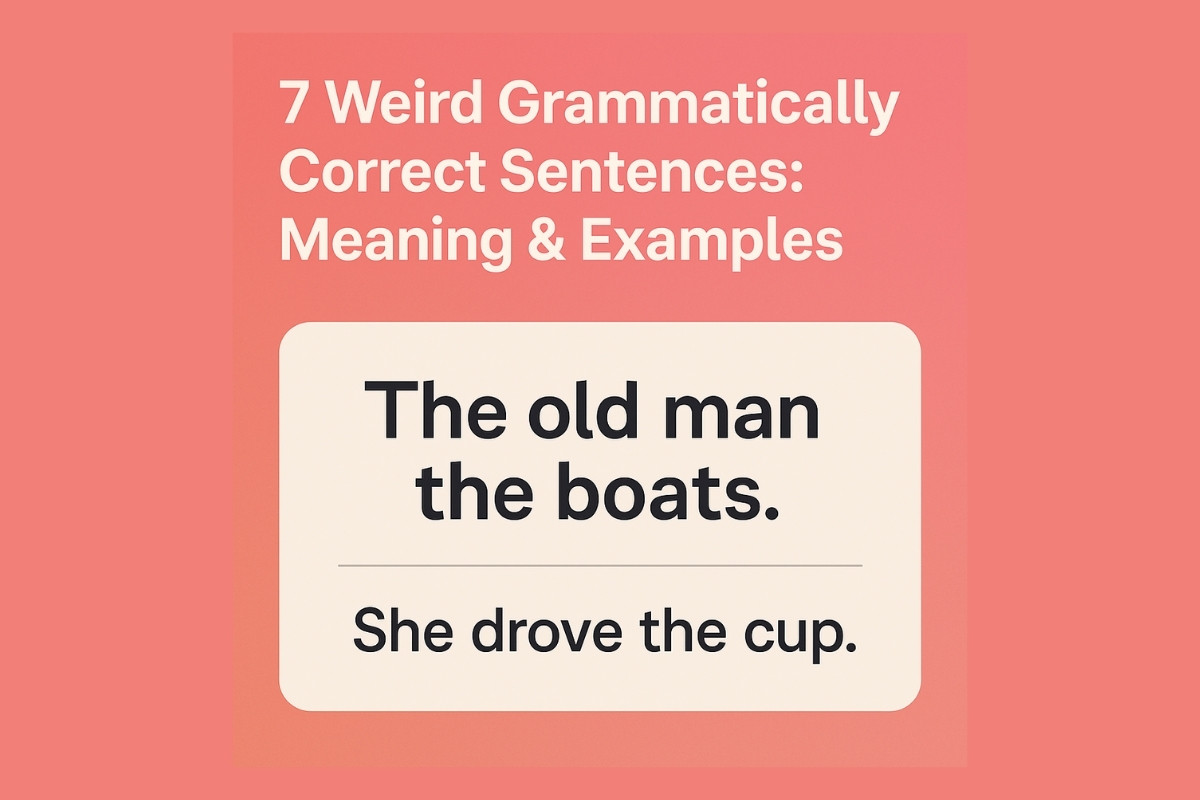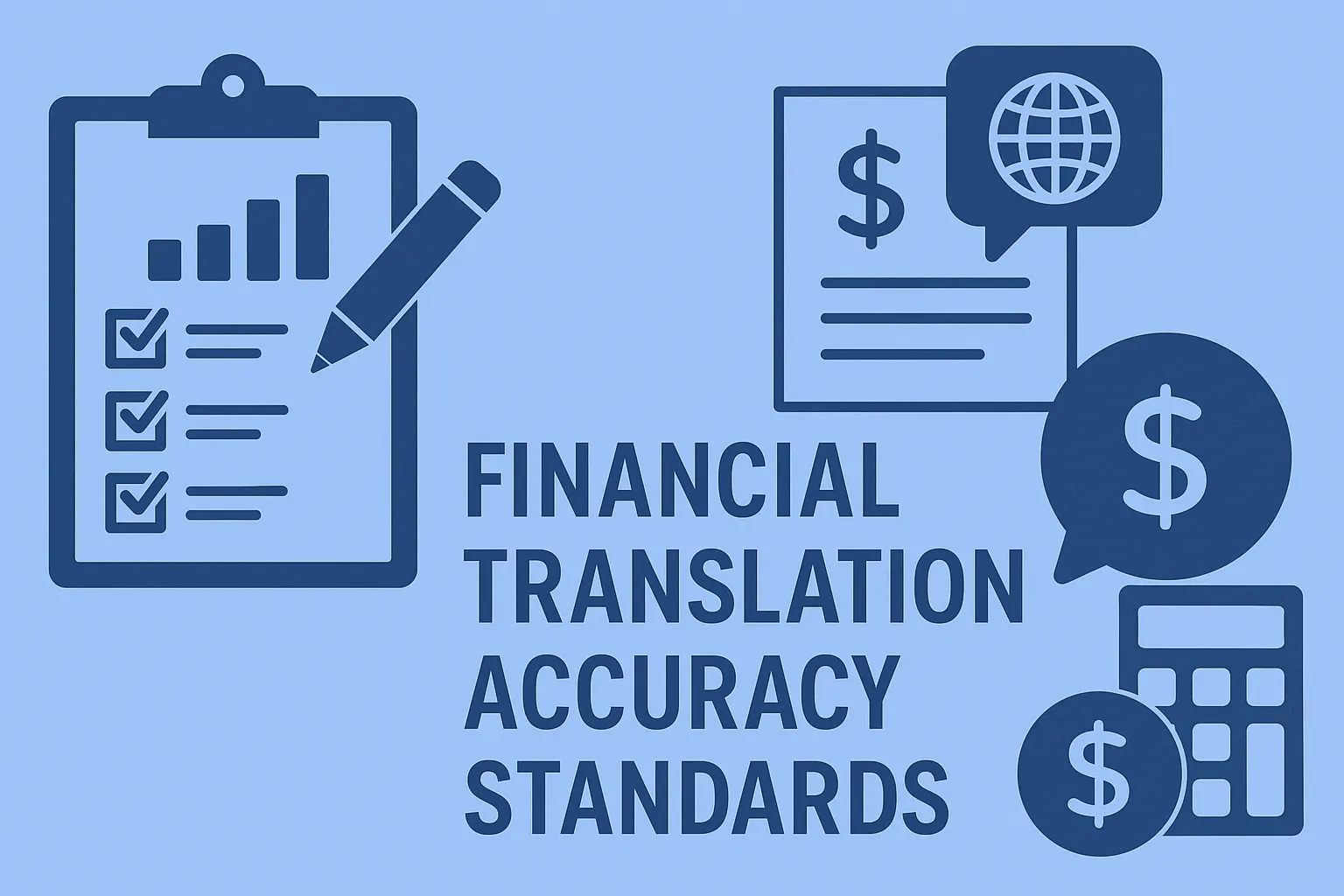The English language is the most spoken globally when including non-native speakers. As we speak, there are 1.4 billion people on the planet using English.
Being quite flexible and relatively easy to learn are two things that contributed to making
English the international language. However, it often presents strange and unique grammatical constructions that, while technically correct, can be highly confusing for readers or listeners.
A sentence like “Time flies like an arrow” is syntactically ambiguous, as it could have different meanings depending on how the reader or listener interprets each word.
In this article, we will cover the topic of grammatically correct yet confusing sentences in greater detail.
What Does “Grammatically Correct” Actually Mean?
When identifying weird, grammatically correct sentences, one must first define what is grammatically correct.
A grammatically correct sentence is a sentence that follows all the rules and conventions of English grammar, meaning it is composed of adequately ordered phrases and words.
Here are some examples of grammatically correct sentences.
- “They walked to the park.”
- “He works at the gas station.”
- “He likes to watch movies.”
Grammatically correct sentences can be made up of words with the same or different meanings and are part of speech readings. They can also contain reduced relative clauses, false syntax, and empty criticism.
One could interpret the sentence “I’m loving it” in two different ways. The first would be a statement expressing an emotion. The second interpretation would be a witty joke or remark.
It’s important to make clear that a sentence can follow English grammar rules and still not make any factual sense. This would be the case of sentences like “My horse has wings” or “He lived for 500 years”.
Why Do Some Grammatically Correct Sentences Sound Weird?
Grammatically correct sentences can be weird for a variety of reasons. Some, like those mentioned earlier, simply make no sense at all. Here are some of the weirdest sentences.
- “He drove the cup.”
- “I painted the water.”
- “She wrote the sun.”
However, most grammatically weird sentences are hard to read due to the incorrect use of words or syntax.
What Are Some Weird but Grammatically Correct Sentences (and Why Do They Work)?
Let’s look closely at some examples of weird and syntactically ambiguous sentences. These may appear confusing, perplexing, and even illegible to a native or non-native speaker but are nonetheless grammatically correct.
Example 1: “All the faith he had had no effect on the outcome of his life.”
In this case, the main problem is that the sentence has two “hads” in a row. While this construction is valid, the use of the same word in a road can confuse many readers and listeners.
Example 2: “I told him I would do it if he should want me to.”
This sentence is weird because of the verb “should.” It could be confusing for many readers and listeners, as it is not a very common verb.
Example 3: “He said that he wanted to go, but when I asked him if he had left already, he did not answer.”
The problem, in this case, is the logical paradox of asking a person if he has left already.
Example 4: “You never really understand a person until you climb into his skin and walk around in it.”
While entirely correct from a mere grammatical standpoint, this sentence could be considered weird by some due to its figurative language.
Example 5: “The dog barked all night, but it did not stop the sun from rising.”
This sentence is weird because of its implicit comparison of two seemingly unrelated phenomena.
Example 6: “He had a plan, but the plans of mice and men often go awry.”
This sentence is weird because of its use of alliteration, which is a literary device rarely used in everyday speech.
Example 7: “Wondering why the sky is blue should never stop us from enjoying its beauty.”
One could consider the sentence weird because of its confusing, abstract, and philosophical nature. However, there are no grammatical mistakes in it.
Why Do People Write Sentences That Are Weird but Grammatically Correct?
There are various reasons why professionals, writers, content creators, movie makers, or everyday people often create grammatically weird sentences.
Firstly, they may think such a structure helps convey a message more originally or humorously. However, these sentences don’t always generate the desired effect. For example, a political journalist may write, “The prime minister had too much to drink,” to make a point about their behavior, but it might confuse readers.
Secondly, using such sentences may be due to a lack of knowledge and experience in the language, particularly for those learning English as a second language. This would be the case of a sentence such as “The cat itched the tree.” They were trying to say, “The cat scratched the tree.”
Thirdly, when trying to convey complex thoughts (especially those of a technical or existential nature), some writers or speakers may use weird, grammatically correct sentences. For example, a young philosopher may say, “The possibility of nihilism should not be a source of despair but instead an invitation to reflect on the fragility of life.” While this sentence is grammatically correct, he may still need clarification from regular readers or listeners.
Finally, one of the most common reasons for using weird, grammatically correct sentences is simply because people lack the necessary experience to create compelling and understandable content. Even experienced writers or speakers can find themselves in a situation where they cannot express their thoughts clearly, resulting in a confusing sentence such as “The idea of freedom brings with it a sense of liberty, yet its implications may be more complex than one might think.”
Other causes of weird, grammatically correct sentences include a desire to be original, to generate interest in the text, or simply to sound more formal.
What Should Proofreaders, Translators, and Interpreters Do When Coming Across Weird Grammatically Correct Sentences?
A very interesting dilemma is whether those in charge of correcting a text or converting it into another language should take proactive actions to change these changes and make them less weird or not. There are arguments for both scenarios.
Proactively changing a sentence to make it less weird has the benefit of making the text easier to understand, thus making the reader’s life easier. In this case, it may be right down convenient to do it. For example, translating a weird advertisement into another language may limit its effectiveness. However, changing the sentence slightly before translating (thus making it clearer to the foreign audience) may directly impact the ad’s success and the company’s revenues.
However, there are situations in which proofreaders, translators, and interpreters may want to avoid changing these sentences or changing them too much. These are cases where it’s important to preserve the authenticity of the source. For example, suppose a writer includes a grammatically correct but weird sentence in a poem. In that case, it’s important not to change it as this may be part of his peculiar style, and changing it would represent a disservice to literature.
Experienced proofreaders, translators, and interpreters can decide on a case-by-case basis when it’s appropriate to make significant changes, when it’s better to make only slight modifications, and when it’s better not to touch the text.
Seasoned translators, in particular, must be acquainted with grammar translation methods that allow them to conserve the sentence’s original meaning while making it understandable in the foreign language.
Can Grammar Software Detect or Fix Weirdly Grammatically Correct Sentences?
Grammar software is designed to help writers identify mistakes and errors in their text, such as typos and wrong verb conjugations. However, its ability to identify weird, grammatically correct sentences is only sometimes guaranteed.
For example, if a sentence has an incorrect structure that still makes sense, grammar software may still consider it correct and therefore miss the opportunity to detect it. Additionally, grammar software may not be able to identify complex thoughts that are expressed in an obscure way.
That being said, some grammar software programs can help identify weird, grammatically correct sentences. For example, some language checkers can detect stylistic errors, such as overly long sentences and a lack of clarity.
In conclusion, grammar software can be an excellent tool for readers, proofreaders, translators, and interpreters when detecting weird, grammatically incorrect sentences.
Final Thoughts
In conclusion, weird, grammatically correct sentences can be found in almost any text. They are usually produced by inexperienced writers, those learning a language, or those trying to convey complex thoughts.
For readers or listeners, the existence of these sentences may require additional effort to understand their true meaning. On the other hand, proofreaders, translators, and interpreters may have to decide when to change these sentences and when it’s better to keep their original form.
No matter the situation, understanding weird, grammatically correct sentences will always be a challenging but rewarding task. It provides the opportunity to delve into unknown realms of language and become more familiar with its complexities.
For those looking to improve their language skills, weird, grammatically correct sentences can be a great stepping stone in the journey toward fluency.
FAQs About Grammatically Correct Sentences
1. What does “grammatically correct” mean?
A grammatically correct sentence follows the structural rules of English — proper word order, subject-verb agreement, tense consistency, and punctuation. It doesn’t guarantee natural flow or clarity, only that it meets grammar standards.
2. What is an example of a weird grammatically correct sentence?
“Buffalo buffalo Buffalo buffalo buffalo buffalo Buffalo buffalo” is grammatically correct because buffalo acts as a noun, verb, and proper noun. The structure makes sense syntactically, even if it seems meaningless.
3. Can a sentence be grammatically correct but make no sense?
Yes. Grammar checks form, not meaning. Sentences like “The old man the boats” or “Time flies like an arrow; fruit flies like a banana” are syntactically correct but semantically confusing.
4. Which sentence is grammatically correct — A or B?
The correct sentence has a valid subject and verb, correct agreement, and proper punctuation.
Example:
✅ She and I are going.
❌ Her and me are going.
5. Is “this this” grammatically correct?
Yes — when one “this” is quoted or referenced.
Example: The word “this” is vague; this “this” should be replaced.
Here, repetition follows grammatical rules for quotation and emphasis.
6. What’s the difference between correct grammar and natural usage?
Correct grammar follows formal rules. Natural usage reflects how fluent speakers commonly express ideas. A sentence like “Whom did you speak to?” is correct but sounds formal; “Who did you speak to?” is natural and widely accepted.
7. How can I quickly check if a sentence is grammatically correct?
Identify the subject and verb, confirm they agree, ensure the sentence forms a complete thought, and review punctuation. Tools like Grammarly, QuillBot, or Hemingway Editor can flag errors, but human review ensures context accuracy.
8. Are all weird grammatically correct sentences acceptable in writing?
Technically yes, but stylistically no. While such sentences prove grammar logic, they often confuse readers. Clear communication matters more than perfect form in most contexts.
9. Why do some grammatically correct sentences feel wrong?
Because of ambiguity or unusual structure. English lets words change roles (noun → verb), creating sentences that follow the rules but break reader expectations — like “We saw her duck.”
10. Can punctuation alone change grammatical correctness?
Absolutely. Missing or misplaced commas, semicolons, or quotation marks can shift meaning entirely.
Example: Let’s eat, Grandma! vs. Let’s eat Grandma! — both are grammatically correct strings, but only one means dinner, not disaster.
Subtitles

Professional and Accurate Subtitle Services for your Videos.
- Video subtitles specifically tailor-made for improving accessibility.
- Using highly experienced subtitlers with years of industry experience.
- Professionally written and expertly timed.
Translation

We help the world’s top companies translate their content in over 73 languages!
- We localize content for internet websites, games, travel, cryptocurrencies, and more
- Expand your global audience by adding different languages.
- We work only with qualified translators and experienced content creators
Audio translation

Ensuring full accessibility for Blind and visual impaired audiences.
- Visual descriptive events as they occur in the video.
- Working with top audio describers to perfectly describe what is happening on-screen
- Professional sound recording.











